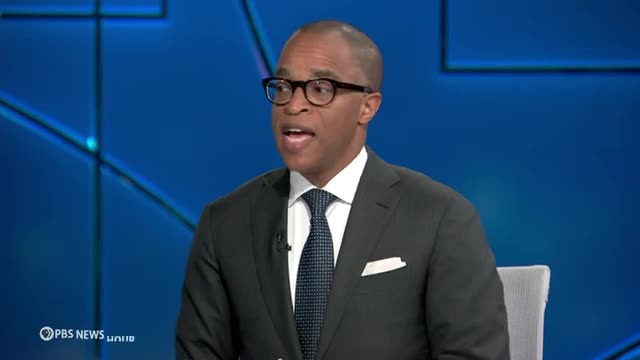Trump's chaotic speech raises doubts about second term potential

This article was created by AI summarizing key points discussed. AI makes mistakes, so for full details and context, please refer to the video of the full meeting. Please report any errors so we can fix them. Report an error »

In a recent government meeting, discussions centered around the Republican National Convention and its implications for both the Republican and Democratic parties. Analysts highlighted the stark contrast in messaging and the potential impact on the upcoming elections.
The conversation began with reflections on the convention, where former President Donald Trump’s speech was described as a missed opportunity. Critics noted that despite the convention's initial success and unity among attendees, Trump's inability to maintain self-control during his remarks raised concerns about the potential chaos of a second Trump administration. Observers pointed out that Trump's rhetoric on illegal immigration had become increasingly aggressive, drawing parallels to past speeches while also noting a shift towards more divisive language targeting immigrants.
The dialogue then shifted to the Democratic Party's internal struggles, particularly the pressure on President Joe Biden to step aside for the upcoming election. Senator Sherrod Brown's recent comments urging Biden to withdraw from the race underscored the growing unease within the party. Analysts expressed concern that if Biden were to exit, the Democrats lacked a clear alternative candidate, with Vice President Kamala Harris's position being a focal point of debate.
The meeting concluded with a discussion on the necessity for a robust primary process, emphasizing that any potential nominee, including Harris, should demonstrate their capability to lead. The analysts warned that the current turmoil within the Democratic Party could hinder their chances in the election, especially if they fail to present a united front.
Overall, the meeting underscored the complexities facing both parties as they navigate their respective challenges leading up to the elections, with significant implications for their strategies and voter engagement.
The conversation began with reflections on the convention, where former President Donald Trump’s speech was described as a missed opportunity. Critics noted that despite the convention's initial success and unity among attendees, Trump's inability to maintain self-control during his remarks raised concerns about the potential chaos of a second Trump administration. Observers pointed out that Trump's rhetoric on illegal immigration had become increasingly aggressive, drawing parallels to past speeches while also noting a shift towards more divisive language targeting immigrants.
The dialogue then shifted to the Democratic Party's internal struggles, particularly the pressure on President Joe Biden to step aside for the upcoming election. Senator Sherrod Brown's recent comments urging Biden to withdraw from the race underscored the growing unease within the party. Analysts expressed concern that if Biden were to exit, the Democrats lacked a clear alternative candidate, with Vice President Kamala Harris's position being a focal point of debate.
The meeting concluded with a discussion on the necessity for a robust primary process, emphasizing that any potential nominee, including Harris, should demonstrate their capability to lead. The analysts warned that the current turmoil within the Democratic Party could hinder their chances in the election, especially if they fail to present a united front.
Overall, the meeting underscored the complexities facing both parties as they navigate their respective challenges leading up to the elections, with significant implications for their strategies and voter engagement.
View full meeting
This article is based on a recent meeting—watch the full video and explore the complete transcript for deeper insights into the discussion.
View full meeting